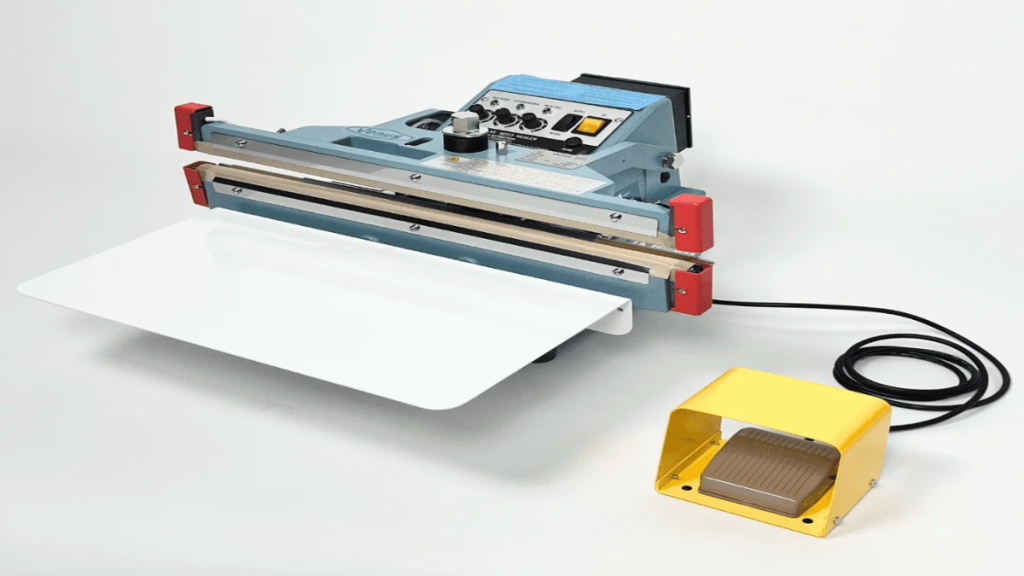Whether you’re designing a packaging system for your business or you’re simply looking for a way to store leftovers and fresh produce at home, a quality heat sealer is the solution. With a wide range of models of different sizes and capacities to choose from, finding the best option for your needs is quick and easy.
Opting for a heat seal machine means that you will be able to keep all types of products secured and fresher for longer. With this in mind, it’s time to create a shortlist of potential options. This post takes a closer look at the top pointers to know as you begin the shipping process.
Always Opt for Quality and Ease of Use
When it comes to choosing a heat sealer, there is no one-size-fits-all solution. A range of available models allows you to choose from small bar heat sealers, right up to larger stand-alone foot pedal models. Here’s our list of pointers to keep in mind before you settle on a specific model.
1. Know What Medium You’re Going to Seal
Not all sealers are designed to seal plastic only. Some models can also seal pouches made of paper and foil. Your first pointer, then, is to establish what you’re going to be putting your products in. If you’re going to be using your heat sealer in your business, you’ll want to choose a material that will keep your product as safe as possible during transit.
A typical example of this is using foil packages for food items such as dried fruit and nuts. On the other hand, jewellery and electronic components can easily be packaged in a film pouch, while documents will work best in a paper pouch. Be sure to add the cost of the pouches into your calculations for budgeting purposes.
2. Review the Maximum Sealing Width
Maximum sealing width refers to the surface area that can be sealed at once. This happens when you place your plastic, foil, or paper pouch on the base surface, and a jaw-like heater bar comes down on the pouch to seal it.
Ideally, the bar shouldn’t be wider than the jaw. It’s a good idea to take an empty pouch with you if you’re viewing models in-store. You should also know the measurements for online purchases. This means you will need to know the size of your package before you buy a heat sealer.
3. Decide on Your Preferred Operation Method
The more popular heat sealers are operated using a simple hand operation where the bar pulls down over the bag. This works well for sealing smaller or flatter items. Whether this process works for you will depend on the product you’re sealing.
In some instances, a user may need to use both hands to close the bag because one hand holds down the bag and the other ensures there are no creases in the seal. When this is the case, you may need to look for a model that features a foot pedal that will then operate the sealing function while your hands hold and manoeuvre the bag.
4. Consider the Connectivity Feature
Modern, innovative bar heaters have a USB port or RS-232 connection that allows them to record specific data during the sealing process. This type of information may include the number of seals, as well as the temperature the product was sealed.
Typically, this type of information is required for medical or food products that may need to be refrigerated. These heat-sealing models will also allow you to connect them to a PC to download the data. This will make it considerably easier to print an accurate label. Since not all bar heaters have this function, it’s essential to add this to your must-have feature list if it’s something you need.
5. Check the Potential Maintenance Required
As with any other appliance or machine you use, your heat sealer will need to be maintained for it to operate smoothly. Ideally, you want a model that’s easy enough to maintain so that you can delegate the task to the person in charge of the packaging process, or you can do it yourself at home. Be sure to check the warranty period as well as the criteria that determine it.
For industrial models that you’ll be using in your business, it’s a good idea to opt for a maintenance plan so that you can have your heat sealer reviewed by an expert every few months to ensure it’s still in good working order. This is especially necessary if you are buying more than one.
Many suppliers and packaging suppliers offer kits of replacement parts for some of the smaller models. It may be a good idea to buy an extra kit, which will make it easier to switch out when any components become worn.
Final Thoughts
Finding the best heat sealer for your home or business needs will be quick and easy when you start listing the features you need. Be sure to choose a model that effectively seals the material you’re going to use. Opt for simplicity and ease of use, and you’ll have a machine that you can comfortably use for years!
